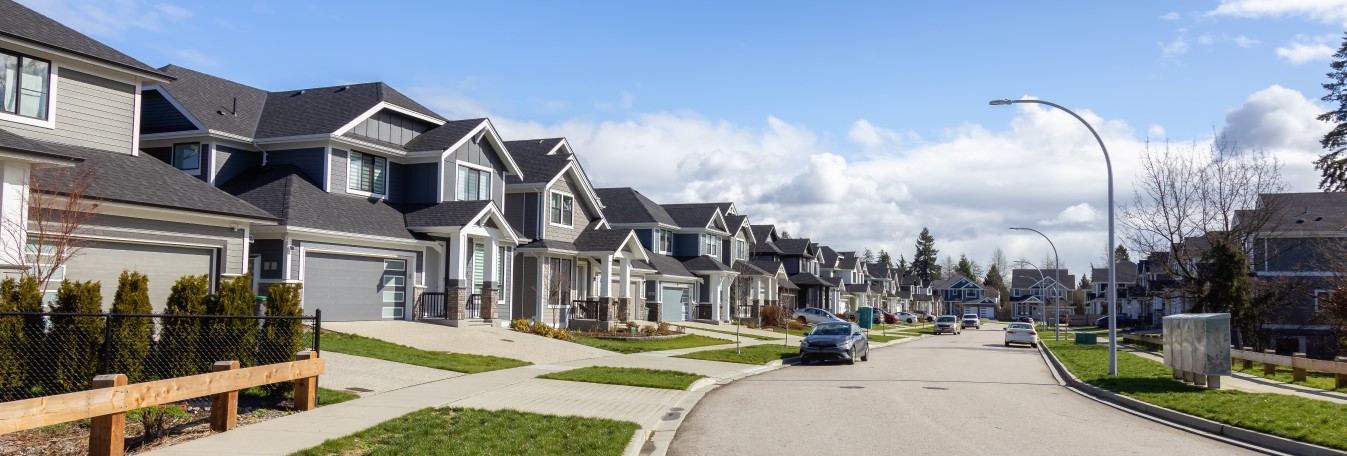Buying Your First Home: Choosing the Right Neighborhood
For many first-time homebuyers, purchasing a home marks a significant milestone—a symbol of stability, investment, and personal achievement. As you embark on this journey, one of the most crucial decisions you'll face is choosing the right neighborhood. The neighborhood you select will not only impact your daily life but also influence your property's value and long-term satisfaction. This article aims to guide first-time homebuyers through the process of selecting a neighborhood that aligns with their needs, preferences, and budget, particularly those considering purchasing a home with an FHA loan.
Understanding FHA Loans and Neighborhood Selection
FHA (Federal Housing Administration) loans are popular among first-time homebuyers due to their lower down payment requirements and more flexible credit criteria. These loans are particularly beneficial for buyers who may not qualify for conventional financing due to limited savings or lower credit scores. When selecting a neighborhood with an FHA loan in mind, it's essential to consider factors that not only affect your personal lifestyle but also align with FHA loan guidelines.
Factors to Consider When Choosing a Neighborhood
1. Affordability
Pros: FHA loans often allow for a lower down payment (as low as 3.5%) compared to conventional loans, making homeownership more accessible in neighborhoods with varying price ranges. This flexibility can help first-time buyers enter the market sooner.
Cons: Some neighborhoods may have higher property taxes or homeowners association (HOA) fees, which can impact affordability beyond the initial purchase price. It's crucial to factor in all ongoing costs when evaluating affordability.
2. Location and Commute
Pros: Consider proximity to work, schools, amenities, and public transportation. A convenient location can save time and reduce commuting costs, enhancing overall quality of life.
Cons: Neighborhoods closer to city centers or with excellent amenities may come at a premium price. Balance the benefits of location with your budget and lifestyle needs.
3. Safety and Crime Rates
Pros: Safety is a top priority for many homebuyers, especially those with families. Research crime rates, neighborhood watch programs, and police presence to ensure you feel secure in your new community.
Cons: Higher safety standards may correlate with higher housing costs. Evaluate safety alongside other factors like affordability and amenities.
4. School Districts
Pros: Even if you don't have children, purchasing in a good school district can positively impact property values. Research school ratings and consider future resale potential.
Cons: Homes in top-rated school districts often command higher prices. Evaluate whether the premium aligns with your long-term investment goals.
5. Amenities and Lifestyle
Pros: Assess nearby amenities such as parks, shopping centers, restaurants, and recreational facilities. A neighborhood that matches your lifestyle preferences can enhance your daily living experience.
Cons: Desirable amenities may contribute to higher housing costs. Prioritize amenities that align with your interests and budget constraints.
6. Future Development and Property Values
Pros: Research future development plans and infrastructure projects in the area. Growth can indicate a thriving community and potential for increased property values over time.
Cons: Construction and development can disrupt daily life and impact property values in the short term. Consider the long-term benefits versus immediate inconveniences.
Steps to Evaluate and Select the Right Neighborhood
1. Define Your Priorities
Before beginning your search, identify your must-haves and nice-to-haves in a neighborhood. Consider factors such as lifestyle preferences, budget constraints, and future plans (e.g., starting a family, career growth).
2. Research Neighborhoods
Use online resources, real estate apps, and local publications to research potential neighborhoods. Consider visiting neighborhoods at different times of the day to get a sense of the community vibe.
3. Consult with a Real Estate Professional
Work with a local real estate agent who understands the market and can provide valuable insights into different neighborhoods. They can also help you navigate the FHA loan process and connect you with mortgage lenders.
4. Attend Open Houses and Community Events
Participate in open houses and community events to interact with current residents and get a feel for the neighborhood culture. Ask questions about schools, safety, amenities, and community activities.
5. Review FHA Loan Guidelines
Ensure the neighborhood you're considering meets FHA loan requirements, such as property condition standards and appraisal guidelines. Your real estate agent and lender can help you understand these requirements in detail.
Case Studies: Neighborhood Selection Success Stories
Case Study 1: Jessica and David's Family-Friendly Choice
Jessica and David, a young couple expecting their first child, prioritized safety and school quality when choosing a neighborhood. They opted for a suburban area known for its excellent schools and family-friendly amenities. With an FHA loan, they were able to secure a home with a manageable down payment, setting a solid foundation for their growing family.
Case Study 2: Michael's Urban Lifestyle Preference
Michael, a single professional, desired a vibrant urban lifestyle close to his workplace and social activities. He chose a neighborhood with easy access to public transportation, restaurants, and nightlife. With an FHA loan, Michael financed a condo in the heart of the city, enjoying the convenience and energy of urban living.
Conclusion: Finding Your Ideal Neighborhood
Choosing the right neighborhood is a pivotal step in the homebuying journey, shaping your daily life and investment potential. By considering factors such as affordability, location, safety, amenities, and future development, you can make an informed decision that aligns with your goals and priorities. With FHA loans offering flexibility and accessibility, first-time homebuyers have more options to explore diverse neighborhoods that meet their needs and enhance their overall homeownership experience. Partner with trusted professionals, conduct thorough research, and trust your instincts to find the neighborhood that feels like home. Happy house hunting!
